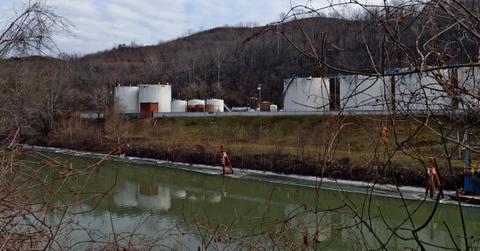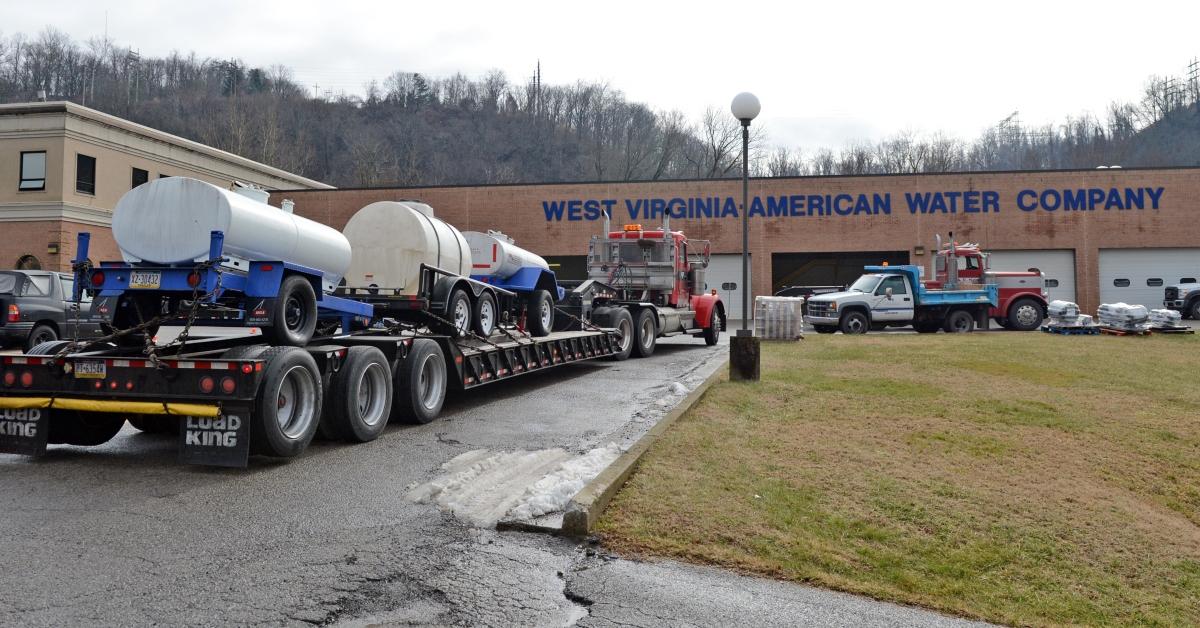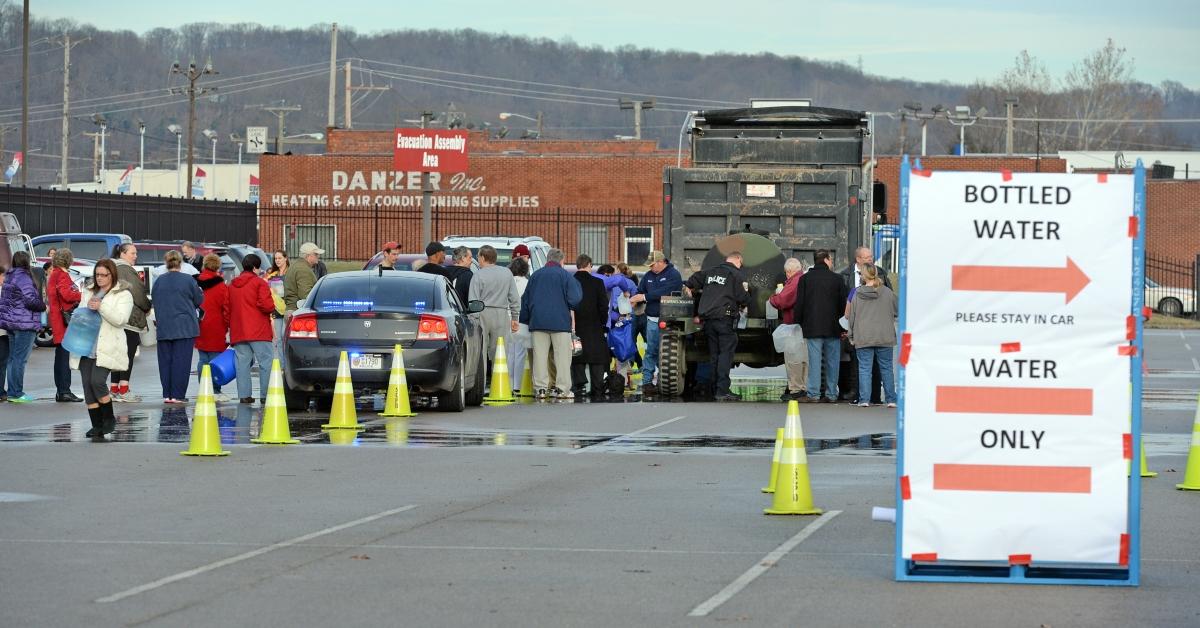The West Virginia Chemical Spill Defaced the Elk River — and Actually Prompted Law Changes
Published May 16 2023, 10:14 a.m. ET

The smell of licorice in the air was the first indication that something wasn’t quite right for residents near Charleston, W.Va., on the morning of Jan. 9, 2014. By the end of the day, the West Virginia chemical spill of the Elk River left 300,000 residents from nine counties without access to drinkable water.
What caused the West Virginia chemical spill?
The 2014 West Virginia chemical spill occurred when about 10,000 gallons of coal-processing chemicals from a Freedom Industries plant spilled into the Elk River, a tributary that provides drinking water to many people in the Charleston area. The spill happened upstream from West Virginia American Water municipal water intake and distribution center.

The chemical spill shut down businesses, schools, hotels, and government offices throughout Charleston and the nine surrounding counties impacted by the spill. Then-President Barack Obama declared a federal emergency for the area, and the National Guard brought in fresh water after residents were ordered not to use tap water for drinking, bathing, or cooking, The New York Times reported.
The West Virginia Department of Health and Human Resources reported that, between Jan. 9 and Jan. 23, 2014, about 369 people were treated for symptoms resulting from the chemical spill, 13 of whom required hospitalization.
What chemical was spilled in West Virginia?
The chemical that contaminated the Elk River was 4-methylcyclohexanemethanol (MCHM), which is used to process coal. It is manufactured by the Eastman Chemical Company and has an OSHA classification of “hazardous” on its Material Safety Data Sheet.

Symptoms of MCHM exposure include skin and eye irritation, vomiting, and diarrhea, as per the West Virginia Bureau for Public Health.
According to a study by the National Toxicology Program of the U.S.Department of Health and Human Services, the leak also contained a mixture of the glycol ethers: propylene glycol phenyl ether (PPH) and dipropylene glycol phenyl ether (DiPPh). The exact concentration of the chemicals from the Freedom Industries leak was unknown, the NTP reported.
Who was responsible for the Elk River chemical spill?
Freedom Industries took most of the blame for the Elk River chemical spill, seeing as it was the company's storage tank that leaked the chemicals into the river. Just a day after the leak, at least eight lawsuits were filed against the company by businesses that were forced to shut down due to the spill, The Charleston Gazette-Mail reported on Jan. 10, 2014.
Freedom Industries filed for bankruptcy soon after the chemical spill, and six company officials were prosecuted for federal crimes due to the spill. The U.S. Justice Department accused the company of failing to:
Implement a plan to treat stormwater and groundwater
Maintain a containment area to prevent chemical spills from reaching the Elk River
Properly inspect the MCHM tank
Have materials at the ready that can help prevent spills
Train employees to comply with environmental laws.

The company was sentenced to a fine of $900,000. Former plant manager Michael Burdette was sentenced to three years of probation and a $2,500 fine for negligently discharging a pollutant. Gary Southern, former Freedom Industries president, was sentenced to 30 days in federal prison and a $20,000 fine.
The West Virginia chemical spill also prompted Congress to update its laws regarding toxic chemicals. According to The New York Times, when the Elk River spill occurred, MCHM was one of about 64,000 unregulated chemicals introduced after the year 1976.